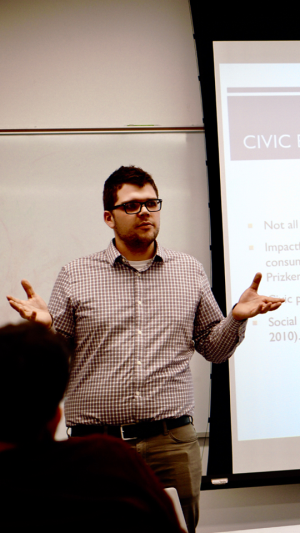Poverty tourism, also known as slum tourism, often refers specifically to guided tours through the urban “slums” of the Global South. The practice has become a popular form of “development,” in a number of cities across the Global South, with the townships of Johannesburg and the favelas of Rio de Janeiro receiving the most traffic. However, in this chapter, I draw attention to the similarities between homeless outreach volunteering and poverty tourism in an urban American context. Based on 12 months of participant observation with six grassroots homeless service organizations in St. Louis, MO, I argue that the privileges and power associated with volunteer statuses, especially statuses of white and/or middle-class, shape perception of and interaction in nonwhite urban space. More specifically, I argue that, much like poverty tourism in the Global South, the tourist gaze displayed by volunteers in marginal urban space emphasizes and helps reify difference between themselves and those they seek to help. Even as they displayed interest in meeting the needs of people experiencing homelessness, volunteers ultimately reinforced the marginal social positions of homelessness subjects. Furthermore, this chapter shows that the otherization process varies based on the ideological bent of the volunteer/volunteer group. Those who more readily deployed color-conscious, social justice frames fixed their gazes upon a consumable blackness. Meanwhile, those who understood homelessness through frames of abstract liberalism cast a gaze that implicitly constructed white homelessness as difference, but black homelessness as dangerous, a product of laziness, and/or cultural deficiency.
Matt’s dissertation, an ethnography of six grassroots homeless service organizations in St. Louis, MO, explores the relationships between race, religion, class, and civic mindedness. His work considers questions about white supremacy, white allyship, urban inequality, the production of stigma, and volunteer tourism. He also entertains a number of “passion projects” on subjects ranging from public attitudes about fracking to social media and the construction of nature. He is the author of “Exotic Place, White Space: Racialized Volunteer Spaces in Honduras,” published in Sociological Forum.
